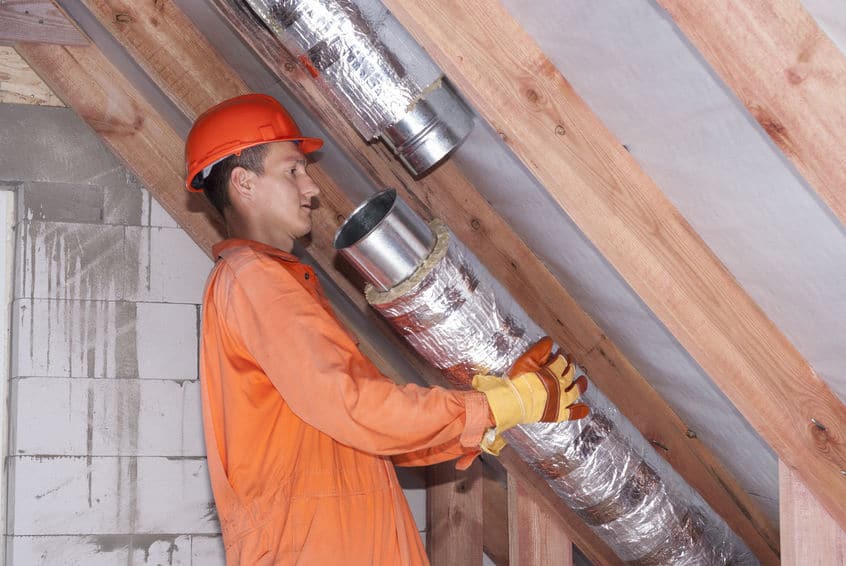When the seasons change, so do your HVAC system commonly known as HVAC. Grasping how https://dall-hay-2.federatedjournals.com/cutting-edge-hvac-solutions-for-compact-living-spaces operates is vital for maintaining maintaining comfort in your residence year-round. Whether you are bracing for the chill of winter and the sweltering heat of summer, taking the time in your HVAC system can save you from costly breakdowns, improve energy efficiency, and enhance indoor air quality.
This article provides key checklists for periodic HVAC care that ensures your system runs smoothly throughout the year. Covering common HVAC issues to helpful tips to reduce your energy costs, we will walk you through all the necessary information. Whether you are new to this or have some experience with HVAC systems, our detailed advice will help you achieve a comfortable living space that promotes health.
Grasping Heating, Ventilation, and Air Conditioning Technologies
Heating, ventilation, and air conditioning, which represents the regulation of temperature and air quality, is a key system in modern homes and facilities that provides comfort through temperature regulation and air quality control. At its heart, HVAC systems execute three primary functions: heating, cooling, and ventilation. By controlling the indoor climate, they contribute to create a comfortable living environment no matter external weather conditions. A variety of systems combine these functions into a consolidated unit, whereas some systems might involve separate components for each function.

The heating component typically uses furnaces or heat pumps to warm the indoor air during chilly months. Furnaces operate by generating heat through gas, oil, or electricity, while heat pumps transfer heat from the external environment to the indoor space. In contrast, the cooling aspect primarily relies on air conditioning units that extract heat from the indoor air, using chilling agents to lower the temperature and reduce humidity the space efficiently. These systems work in conjunction with ductwork or fans to distribute warmed or cooled air throughout the building.
Ventilation, the third essential function of HVAC systems, consists of the exchange of indoor air with clean outdoor air. This process is key for maintaining indoor air quality and removing pollutants, allergens, and moisture that can gather over time. Different forms of ventilation exist, including natural ventilation, active ventilation, and equilibrium systems. Together, these elements and functions work to create a safe and comfortable indoor environment appropriate for all residents.
Heating, Ventilation, and Air Conditioning Care and Efficiency
Regular maintenance of your heating and cooling system is essential for guaranteeing optimal functionality and efficiency. A properly serviced system functions more efficiently, which can result in lower energy bills and better comfort levels in your home. Fundamental upkeep tasks include replacing air filters frequently, inspecting for any leaks in ductwork, and ensuring that the outdoor unit is clear of debris. Organizing annual professional inspections can also help detect potential issues before they become significant problems.
Another important aspect of HVAC performance is effective thermostat management. Adjusting your thermostat appropriately for each season can make a considerable difference in energy consumption. For the winter season, consider lowering your thermostat a few of degrees when you are away or asleep. In the summer, adjusting the temperature a bit when you are not home can lower cooling costs. Additionally, using programmable thermostats can improve your HVAC system's functionality by dynamically adjusting settings based on your habits, thus enhancing effectiveness.
Indoor air quality is linked with HVAC performance. Regular maintenance practices can avoid dust, mold, and allergens from circulating in your home, which can diminish air quality and increase the workload on your HVAC system. Selecting the right air filters and ensuring sufficient ventilation are essential for maintaining a safe environment. This not only supports your HVAC system’s performance but also promotes a more enjoyable and more wholesome living space.
Seasonal Heating, Ventilation, and Air Conditioning Preparations
Getting ready your HVAC system for the transitioning seasons is crucial to guarantee maximum performance and efficiency. For the chilly months, it’s vital to check the heating components, including the heater and temperature control settings. Make sure to replace air filters to enhance airflow and maintain indoor air quality. Checking ductwork for holes and sealing any gaps can prevent heat loss, helping to keep your home warm without straining your system.
As summer approaches, it's crucial to prepare your cooling system for the elevated temperatures. Begin by cleaning the outdoor unit of your air conditioner, clearing debris and foliage that could block airflow. Verify the refrigerant levels, and make sure that all connections are firm. Setting the thermostat to a raised temperature while you're away can also assist lower energy bills, allowing your HVAC system to run more efficiently.
In both seasons, scheduling a professional tune-up can provide further peace of mind. Technicians can discover and correct potential issues before they transform into significant problems, thus extending the life of your HVAC system. Regular maintenance is key to promoting efficiency in energy use, enhancing indoor comfort, and avoiding expensive repairs later on. By sticking to these seasonal preparations, you make certain that your home remains comfortable throughout the year.
